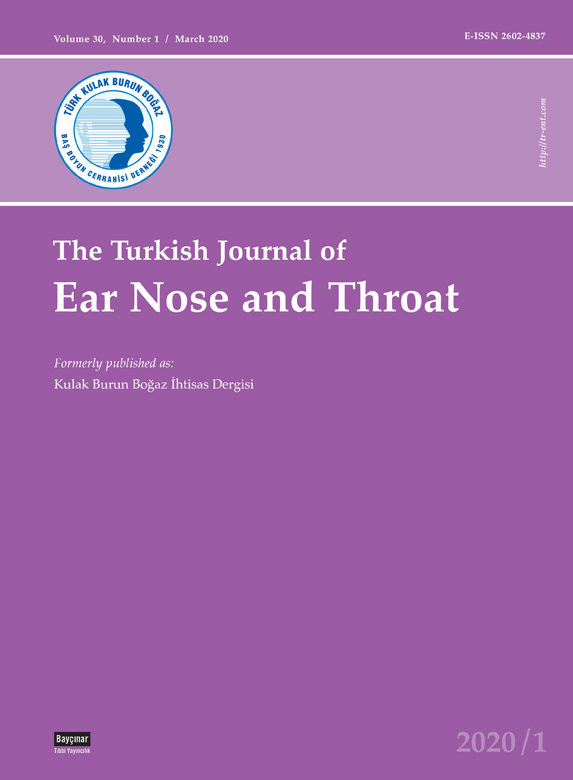
The Turkish Journal of Ear Nose and Throat
Yazarlar: Ali Vefa Yücetürk, Kıvanç Günhan
Konular:-
Anahtar Kelimeler:Carcinoma,Squamous cell/surgery,Deglutition,Laryngealneoplasms/pathology/surgery,Laryngectomy/adverseeffects/methods,Phonation,Postoperative complications/epidemiology,Neumonia,Aspiration/etiology,Recurrence,Survival rate.
Özet: Objectives: The aim of this study is to evaluate the oncological outcome and postoperative course, mortality, morbidity, and functional results after supracricoid laryngectomy (SCL). Patients and Methods: Fifteen consecutive patients who underwent SCL for primary laryngeal squamous cell carcinoma from April 1996 to December 2000 were followed up longer than two years and included into the study. Unilateral arytenoidectomy was required in seven of the SCLs. All of the patients with supraglottic tumor and the patients with glottic T2-3 tumors underwent neck dissection in the same session with SCL. Adjuvant radiotherapy was applied to 2 patients with pN2 and pN3. Results: The mean time for starting oral feeding was 6 days (range 3-10 days) and the time for adequate oral taking was 12.5 days (range 7-25 days). Nasogastric tube was removed in 7-49th postoperative days (mean: 15.7 days). All the patients were decannulated successfully in 10-38 days (mean 18 days) and had a satisfactory swallowing pattern, a well-understood speech, and a intelligible voice quality. The hospitalisation period was 12 to 46 days (mean: 23.4). The durations of adequate oral feeding, nasogastric tube removal, decannulation, and hospitalisation were longer in the patients with one arytenoid preserved than the patients with bilateral arytenoids preserved; but the difference was not statistically significant. Postoperative complications were observed in three patients. Wound infection was found in two patients in early postoperative period. In an other patient with T3 supraglottic tumor involving the medial wall of pyriform sinus aspiration pneumonie had occurred twice in six months after the first operation. This patient had undergone total laryngectomy 7 months after the first operation. None of the patients were recurred nor died in the follow-up period. The mean follow-up of the patients was 50.3 months (range: 26-80 months). Conclusion: SCL has obvious functional advantages compared to total laryngectomy and has the similar local control rates.